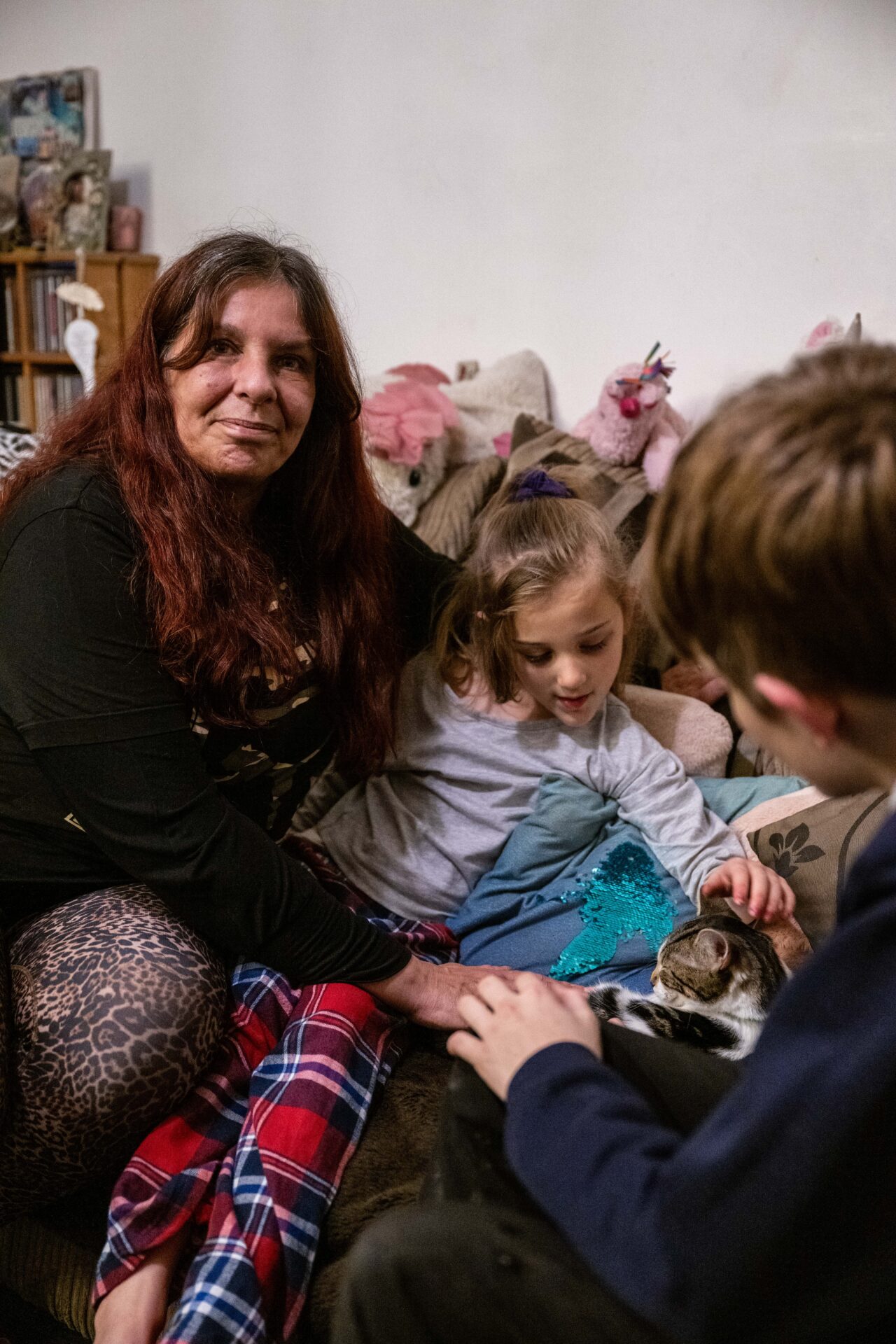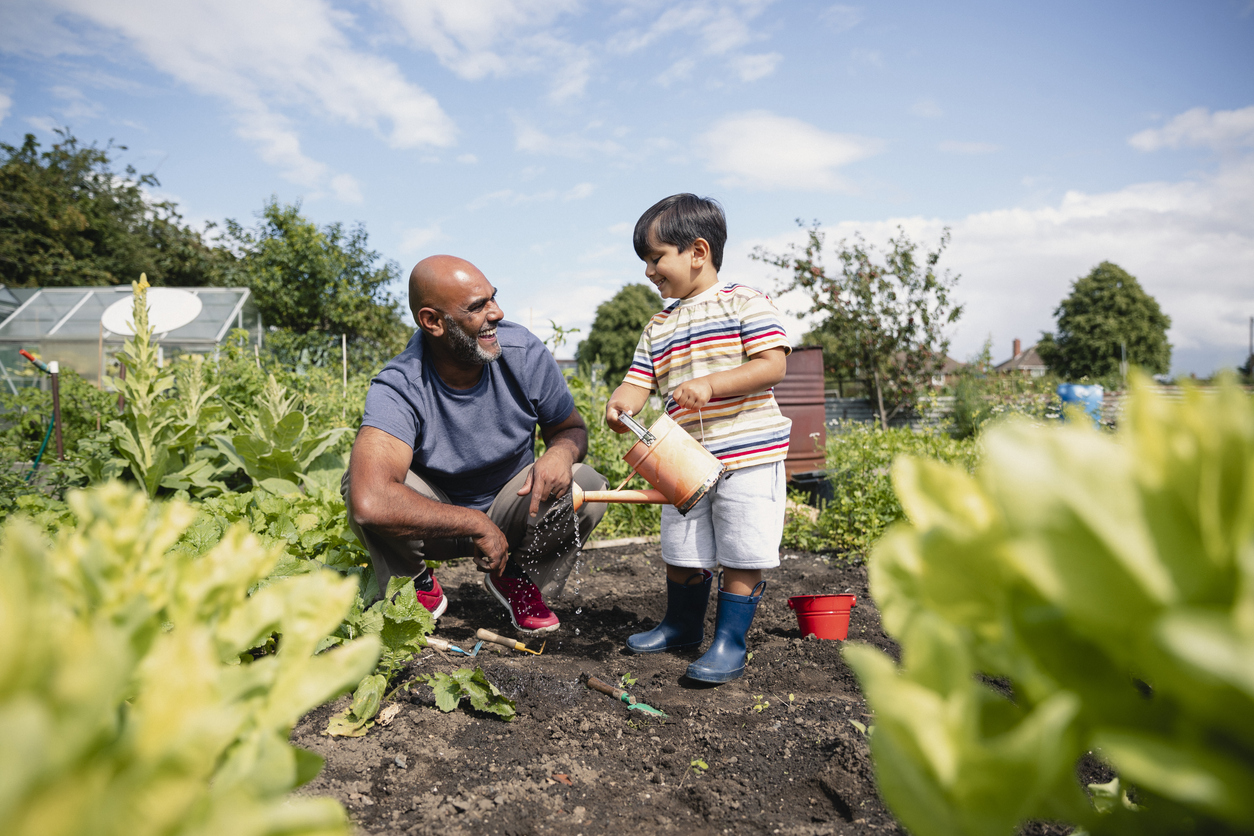
Published ahead of Kinship Care Week 2025, Handle With Care shares key findings from our 2025 annual survey of more than 1,900 kinship carers to provide an updated ‘state of the nation’ overview of kinship families and the current policy context.
A new family group decision making (FGDM) duty is being introduced whilst we await await further evaluation of piloted reforms to family network support.
Slow progress
Previous status: Good progress (September 2023)
Click on the link below to take you to the section you'd like to read:
The government’s Children’s Wellbeing and Schools Bill, currently progressing through Parliament, includes a new legal duty to embed family group decision-making (FGDM) as an offer for all families before care proceedings are initiated. In supporting wider family networks to be more effectively involved in decision making about the children they love, this aims to ensure a consistent offer across local authorities in England with the stated aim of reducing the number of children entering local authority care.
In July, an evaluation report with early findings around the implementation and delivery of the Families First for Children Pathfinder (FFC) was published. In November, an initial research report from the Family Network Pilot (FNP) evaluation was also published. We await further information about subsequent evaluation of both the FFC Pathfinder and FNP and an understanding of how the findings will further influence policy and practice direction in children’s social care.
The government is continuing to invest in family services following the Spending Review to rebalance the system towards earlier intervention and support, particularly through its Families First Partnership programme which describes a new operating model for local authorities around family help, multi-agency child protection and family group decision-making reforms.
Following publication of its fostering policy paper in February 2026, the government are currently consulting on proposals to remove the requirement for the use of some fostering panels for kinship foster carers. They’re also seeking views on the impact of changes to the 2024 kinship care statutory guidance on the use of flexibilities in the approval of kinship foster carers who do not meet minimum standards.
In February 2023, Stable Homes, Built on Love committed to delivering £45 million investment in two new programmes:
These actions followed the Independent Review of Children’s Social Care’s recommendation in 2022 that a legal right to family group decision-making should be introduced along with new Family Network Plans to better support kinship arrangements to prevent a child going into care. The term ‘Family Network Support Packages’ was adopted instead following feedback that a new ‘Plan’ could introduce legal confusion and additional burdens.
In addition, updated statutory guidance on kinship care published in October 2024 encouraged local authorities to make use of findings from Foundations’ randomised control trial of family group conferences (FGCs) and work towards every family being offered an FGC at pre-proceedings stage. Both the Children’s Social Care National Framework and revised Working Together to Safeguard Children guidance note an expectation that family networks are engaged and empowered from an early point in referral, and that the voices of family networks are prioritised through the use of family group decision making wherever possible.
The inclusion of a new duty to offer FGDM within the Children’s Wellbeing and Schools Bill is broadly welcome, but we want to see additional emphasis placed on accompanying reforms to maximise its positive impact and minimise potentially negative unintended consequences. We hope this will enable wider family networks to be more effectively involved in decision making about and supporting the children they love, and it may help the identification of potential kinship carers if required to deliver care in the future.
In our 2025 annual survey, 26% of kinship carers said they had taken part in some form of FGDM. Views on their experiences and the support they had been offered before, during and following was very mixed; whilst some shared positive experiences of facilitation which successfully brought those around a child together to come up with solutions, many spoke of their views, offers or concerns shared as members of the wider family network being ignored, and raised issues with pressurised decisions and poor information and advice. Kinship carers also spoke of being abandoned by children’s services and promised support never being realised, either for them or for others in the family network, and being expected to pick up the pieces themselves.
Unfortunately, the government’s impact assessment for the Bill’s children’s social care provisions and its rhetoric around the relationship of this policy to kinship care is confused, and may have unintended consequences for the operation of the kinship care system. Using FGDM to achieve the government’s stated aim of reducing the number of children in local authority care (and increase the number of children in kinship care) creates a significant risk that relatives and friends will – either explicitly or tacitly – be encouraged to pursue informal kinship care arrangements or legal orders secured in private proceedings when this may not be in the best interests of the child or their kinship carer(s), particularly given the impact this has on their future eligibility for support.
The effective and responsible delivery of a new FGDM duty relies on, as recommended by the Independent Review of Children’s Social Care, accompanying reforms which would provide the subsequent support which family networks may need. However, progress to date on these has been much slower. Evaluation of the FFC pathfinder found that initial FNSP rollout was slow, “driven by uncertainty amongst frontline staff around how to use it and the restrictions on how to spend the funding”, and initial evaluation of the separate FNP also suggests there were concerns around “administrative burden, delays in payment… and some initial confusion about FNSP spend criteria” and that FNSP use “required significant mindset change, particularly among social workers used to working within tight financial constraints”.
Ongoing plans for future rollout alongside wider Families First Partnership reforms are to be confirmed. This is why the Family Network Pilot (FNP) is crucial in testing how to rebalance the system and work through financial, legal and other practice challenges which might inhibit such approaches to intensive, earlier support for family networks. It is promising that early FNP findings suggest “FNSPs were used flexibly to address practical barriers to family support, including funding for furniture, transport, income replacement, and home modifications” and that “qualitative evidence suggests
the pilot helped strengthen family networks, reduced escalation, and in some cases, avoided care proceedings”.
More broadly, the shift towards much earlier involvement of and funded support for kinship carers prior to a legal order being made and without the child having to become ‘looked after’ is welcome, particularly as support for informal kinship carers is often poor or non-existent. Our 2022 annual survey found that only 4% of informal kinship carers received financial support from their local authority, despite their children’s similar needs and experiences to those in other forms of kinship care.
The government must work at pace to acceerate the further rollout of reforms such as Family Network Support Packages, to ensure the system is best placed to adequately support kinship carers and their children in situations where the child does not become looked after. This is particularly crucial in the context of the introduction of the new legal duty to offer FGDM without the concurrent reforms to family network and kinship carer support proposed by the Independent Review of Children’s Social Care.
At minimum, forthcoming guidance to support the implementation of the Children’s Wellbeing and Schools Bill must consider the specific experiences and views of kinship families with FGDM, and additional research should be undertaken to improve the evidence base around the interaction between FGDM and kinship care. Guidance and monitoring of the FGDM duty implementation should ensure that increasing use of this practice doesn’t reinforce the dysfunctionality within the current system and act to push families into arrangements with long-term implications for eligibility for support when not in their best interests.
It is understandable that government plans continue to test out new ways of working in tandem with each other to learn more about how to implement whole-system reforms successfully. In Stable Homes, Built on Love the previous government said it was “proposing to develop the pathfinders on an incremental basis, with certain elements that we’d need to see as a minimum now and an expectation that the pathfinder would expand its remit in future after we have tested and evaluated the concept”. The timeline for further evaluation and rollout of reforms associated with the Family Network Pilot and use of FNSPs should be clarified as soon as possible.
We hope to see future evaluation and rollout explore how to balance requirements for assessment and ongoing formal oversight from local authorities whilst respecting the unique nature of kinship care and its position straddling state-led child welfare intervention and private family life. This was a key message within our response to the government’s Stable Homes, Built on Love consultation. Kinship carers should be involved in co-designing how to do this well, and in ways which reduce unnecessary, stigmatising and invasive practice.
26% had participated in family group decision making (FGDM)
More than 130,000 children in kinship care in England

Published ahead of Kinship Care Week 2025, Handle With Care shares key findings from our 2025 annual survey of more than 1,900 kinship carers to provide an updated ‘state of the nation’ overview of kinship families and the current policy context.

Find out how you become a kinship carer, and what to expect from the process.

This study aims to understand the role of support from family, friends and community groups for kinship carers from different backgrounds.
View Understanding kinship carer networks to inform targeted support